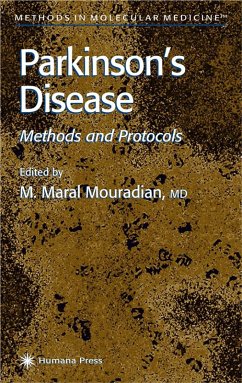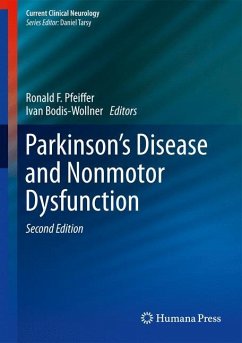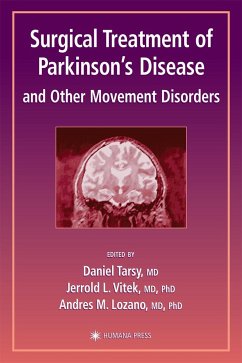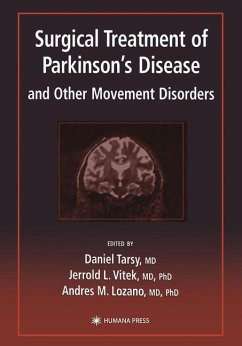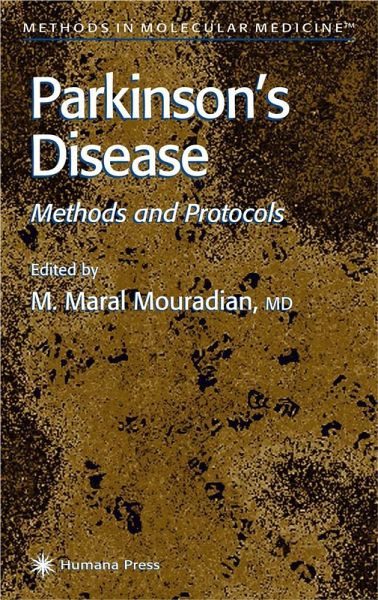
Parkinson's Disease
Methods and Protocols
Herausgegeben: Mouradian, M. Maral
Versandkostenfrei!
Versandfertig in 6-10 Tagen
113,99 €
inkl. MwSt.

PAYBACK Punkte
57 °P sammeln!
Parkinson's disease is a progressive neurodegenerative disorder charact- ized clinically by tremor, rigidity, slow movements, and postural instability. Pathologically, dopaminergic neurons of the substantia nigra bear the brunt of the degeneration, though other neuronal groups can be affected as well. Although Parkinson's disease is the only neurodegenerative disorder for which effective therapies are available, these treatment options are only symptomatic, do not influence the underlying degenerative process, and are associated with a high incidence of complications, particularly with their l...
Parkinson's disease is a progressive neurodegenerative disorder charact- ized clinically by tremor, rigidity, slow movements, and postural instability. Pathologically, dopaminergic neurons of the substantia nigra bear the brunt of the degeneration, though other neuronal groups can be affected as well. Although Parkinson's disease is the only neurodegenerative disorder for which effective therapies are available, these treatment options are only symptomatic, do not influence the underlying degenerative process, and are associated with a high incidence of complications, particularly with their long-term use. The progressive nature of the disease and the limitations of its palliative therapies result in significant functional impairment. The chronic disability and the increased prevalence of the disease with the prolongation of life expectancy in developed countries make the social and economic impact of this disease quite high. For- nately, systematic basic and clinical research inthis disease has yielded major new advances that render patients' hopes for a cure considerably closer to reality. The application of molecular biologic methodologies in the study of Parkinson's disease has begun to have a major impact only in recent years. Con- quently, the utility of these technologies is largely in the research arena, although their clinical applications are now being realized.



